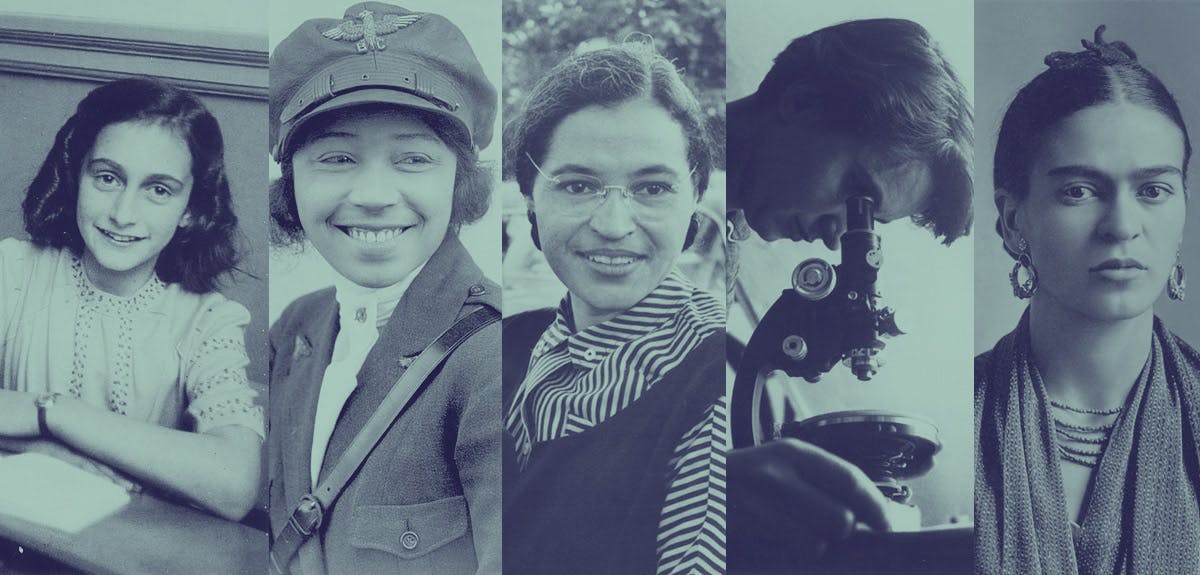Since 1987, by an act of Congress, March has been designated as National Women’s History month, and today – March 8 – is International Women’s Day (IWD).
In 1911 over a million women and men rallied, mostly in Europe, in support of women’s rights on what became known as the first International Women’s Day. Less than a week later, the deadliest industrial disaster in the history of the New York City – known as the Triangle Shirtwaist Factory Fire — killed 146 people, mostly young immigrant women. This devastation sparked many changes in industrial working conditions and has fueled change for more than a century.
The world was a different place in the early 20th century. Our society was changing, and many pioneering women had already been working at the frontier of that change. For example, at a time when women were barred from entrance to higher education,
- Catherine Brewer became the first woman to earn a bachelor’s degree, graduating from Wesleyan College in Macon, GA in July of 1840;
- Elizabeth Blackwell became the first woman to graduate from medical school in 1849 when she finished at the top of her class at Geneva Medical School in Geneva, NY; and
- Mary Jane Patterson was the first African-American women to earn a bachelor’s degree, awarded by Oberlin College in Ohio in 1862.
In less than 50 years since the last of United States’ universities began accepting women, there are now more women than men receiving advanced degrees in our country.
In the formative years around the turn of the last century, women were also leaving their mark with game-changing inventions that improved the quality of countless lives:
- In the early 1880s, Maria E. Beasley received 15 patents, including one that saved lives with her improved life raft to keep people safe when they had to abandon ship.
- In 1903, Marie Curie became the first woman to win the Nobel Prize in Physics; she won a second in 1911 in Chemistry and is the only woman to date to have won two Nobel Prizes.
- In 1910-1911, Lilian Bland was the first woman in the world to design, build and fly an aircraft (well ahead of Emily Howell Warner becoming the first woman to become an American airline captain in 1976).
Throughout history women have improved our civilization in every way imaginable. In our current world, those improvements now extend much further, and I take comfort in knowing that my daughters will have opportunities far more expansive than they might have had 50 years ago.
The first time I encountered the celebration of IWD was in Kazakhstan. We lived there for a month in the process of adopting three of our children. On March 8, I was informed that it was “Girls’ Day” (it is unclear if they used that term routinely or just used it at the orphanage). My daughter-to-be Victoria participated in a performance of sorts, and there was an exchange of cards and gifts to all the girls and women. It was interesting to me how people thought about this day, in this corner of the former Soviet world that celebrated IWD long before we did here in the U.S. The girls and women basked not in the new-found accomplishments of their gender … but in the simple honor of being a girl, young lady, or women in a society that depends on all of them to make every facet of life better.
One woman who I admire greatly is Mother Teresa of Calcutta, who at just five feet tall was a humble servant to the sick and poor. She founded the Missionaries of Charity that had over 4,500 nuns active in over 133 countries, running mobile clinics, schools, orphanages, and soup kitchens. Mother Teresa had many well-known quotes. The one that sticks with me is,
“I alone cannot change the world. But I can cast a stone across the waters to create many ripples.”
I am also most grateful for the many women who have shaped my personal and professional growth. For my Aunt Margo, who graduated with a medical degree in Iraq around the time the first women were graduating from Harvard Medical School. For my Aunt Rene who graduated #1 in her class at Baghdad University as a Mathematician, and then earned her master’s degree 6,500 miles away … at the University of Michigan. And most of all for my earliest mentor, my mother Bonnie, whose incredible work put six kids on the road to successful adult lives.
As we celebrate International Women’s Day and the 2021 theme ‘Choose To Challenge,’ I imagine Mother Teresa and the many change champions throughout the centuries would stand united behind this global day recognizing the social, economic, cultural and political achievements of women.
I encourage you to reflect today on the women who have influenced your life – directly or indirectly – and support and inspire those seeking to #ChooseToChallenge!
If so inclined, please share on the change agents who have made a difference in your life or career, and why.
